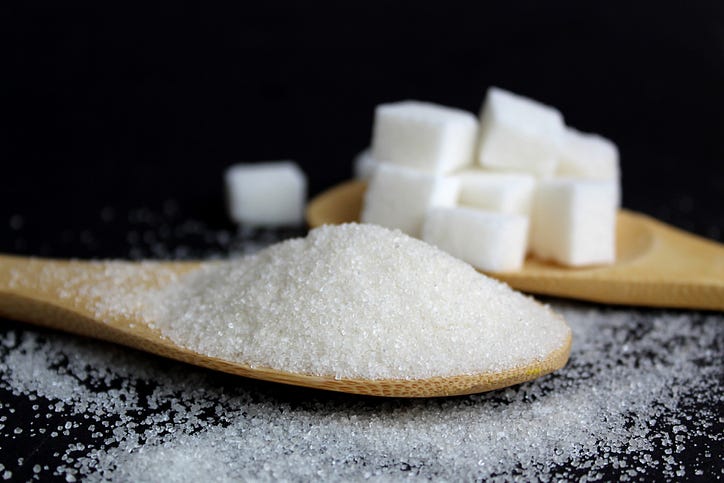
Scientists are sounding an alarm on erythritol, an artificial sweetener used to sweeten stevia, monkfruit and keto reduced-sugar products.
A new study, published in Nature Medicine, claims the product has been linked to blood clotting, stroke, heart attack and death.
"The degree of risk was not modest," lead study author Dr. Stanley Hazen said in a statement. "If your blood level of erythritol was in the top 25% compared to the bottom 25%, there was about a two-fold higher risk for heart attack and stroke. It's on par with the strongest of cardiac risk factors, like diabetes."
Artificial sweeteners, such as erythritol, are common replacements for table sugar in low-calorie, low-carbohydrate and keto products. Sugar-free products containing erythritol are often recommended for people who have obesity, diabetes or metabolic syndrome and are looking for options to help manage their sugar or calorie intake.
Erythritol, also referred to as a sugar alcohol, is found in several brand name products including Truvia, Splenda, Swerve, In The Raw, Purecane and many others. It's sold in a pure form or in a blend, often with stevia or sucralose. Erythritol is also naturally present in low amounts in fruits and vegetables.
According to the study, erythritol is about 70% as sweet as sugar and is produced through fermenting corn. After ingestion, erythritol is poorly metabolized by the body and instead goes into the bloodstream. The human body creates low amounts of erythritol naturally, so any additional consumption can accumulate.
"Sweeteners like erythritol, have rapidly increased in popularity in recent years but there needs to be more in-depth research into their long-term effects," Hazen said. "Cardiovascular disease builds over time, and heart disease is the leading cause of death globally. We need to make sure the foods we eat aren't hidden contributors."
Researchers studied over 4,000 people in the U.S. and Europe and found those with higher blood erythritol levels were at elevated risk of experiencing a major adverse cardiac event such as heart attack, stroke or death. Additional research also revealed that erythritol appeared to be causing blood platelets to clot more readily.
"Our study shows that when participants consumed an artificially sweetened beverage with an amount of erythritol found in many processed foods, markedly elevated levels in the blood are observed for days – levels well above those observed to enhance clotting risks," Hazen said.
Erythritol is "Generally Recognized As Safe" by the Food and Drug Administration, which means there is no requirement for long-term safety studies.
Researchers note the importance of follow-up studies to confirm their findings in the general population.
"It is important that further safety studies are conducted to examine the long-term effects of artificial sweeteners in general, and erythritol specifically, on risks for heart attack and stroke, particularly in people at higher risk for cardiovascular disease," Hazen said.
Follow KNX News 97.1 FM
Twitter | Facebook | Instagram | TikTok


